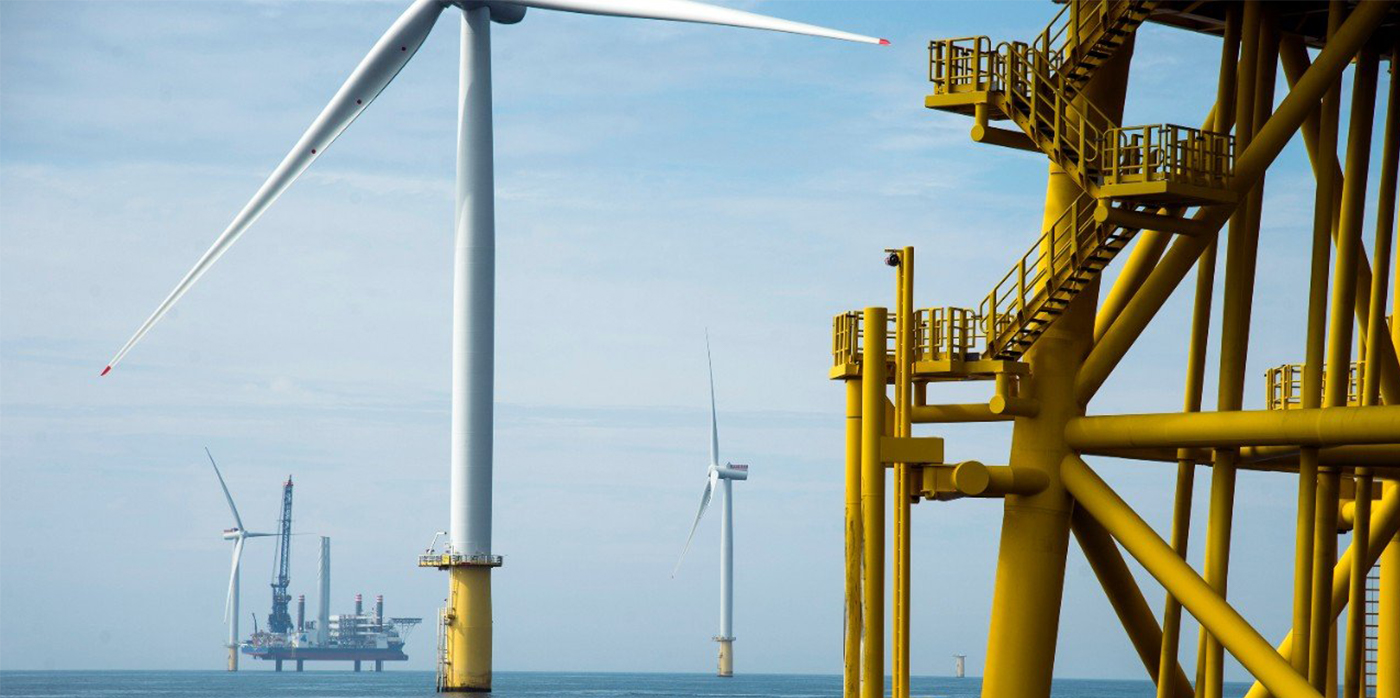Ecological Consequences of Offshore Wind Call Announced by NERC
Funding is offered for research into marine ecosystem responses to the cumulative pressures of a large increase in deployment of offshore wind-power infrastructure and other anthropogenic stressors.
The new Natural Environment Research Council (NERC) Ecological Consequences of Offshore Wind (ECOwind) Call offers funding to research UK marine ecosystems, specifically how ecosystems respond to offshore wind-power infrastructure and better approaches to marine environmental restoration. The call is co-funded by The Crown Estate. The Crown Estate owns a portfolio of land and manages the seabed and half the foreshore around England, Wales and Northern Ireland.
In its bid to deliver net zero, the UK seeks to significantly expand offshore wind and achieve Good Environmental Status (GES) for UK seas by 2021, a target likely to be missed. There is a need to understand ecosystem responses to the cumulative pressures of a large increase in deployment of offshore wind, in combination with other anthropogenic stressors, and how this will influence progress towards GES. This requires new scientific approaches that advance understanding of the dynamics of marine ecosystems.
The ECOwind research programme aims to address a critical gap in understanding how marine ecosystems will respond to the planned large-scale expansion of UK offshore wind infrastructure. The programme will provide evidence to inform marine policy and management of increasing pressures on UK marine ecosystems from a combination of:
- Offshore wind.
- Other anthropogenic stressors (eg oil and gas, aquaculture, and fishing).
- Environmental response to climate change (eg deoxygenation and rising sea temperatures) and ocean acidification.
The programme’s two priority research challenges are:
- How will the expansion of offshore wind, combined with other anthropogenic pressures (including the environmental response to climate change and ocean acidification) affect species interactions and the functioning of UK marine ecosystems?
- How can understanding these ecological consequences inform the development of robust approaches to marine environmental recovery and net environmental gain?
Incorporating both observational and predictive approaches will be required to develop capacity to predict ecosystem change and refine policy responses over time. Expertise needs to be combined across marine science disciplines to develop new ways of understanding effects at spatial and temporal scales that are relevant for populations of key species.
Proposals must respond to these challenges by addressing all three of the programme’s research areas:
- Observing inter-species interactions, population dynamics and viability.
- Enhancing marine observations.
- Informing marine policy and management solutions.
In addressing these three areas, the greater proportion of funding within each project will go towards areas one and two, which involve developing predictive and observational techniques. Area three is focused on informing decision-making and the implementation of emerging policy concepts. Proposals should primarily focus on UK national marine waters so that findings are most relevant for UK policy development and marine spatial planning.
Normal individual eligibility rules apply (ie must be resident in the UK, at lecturer (or equivalent) level or above, and based in a UK higher education institution, research council institute, independent research organisation or public sector research establishment approved by NERC).
Proposals should include a high degree of collaboration across different disciplines and different research organisations. Collaboration with overseas researchers is encouraged where applicants can demonstrate that it will add value to the overall outcomes of the ECOWind research programme. Proposals are expected to collaborate with stakeholders (eg policy, regulatory or industry).
The scheme budget is £6 million. The maximum award is £2.5 million at full economic cost for a duration of up to 48 months. NERC will provide funding at 80% of full economic cost (ie NERC will award grants with a budget of up to £2 million). Grants must start no later than 9 August 2022.
Applicants must first submit an outline proposal. The outline proposal stage will be used to identify proposals that will be invited to submit a full proposal. One outline proposal submission is required for each proposed project. This should be submitted by the lead Principal Investigator and cover all components.
Outline applications must be submitted by the deadline of 25 November 2021 (16:00).
(This report was the subject of a RESEARCHconnect Newsflash.)

